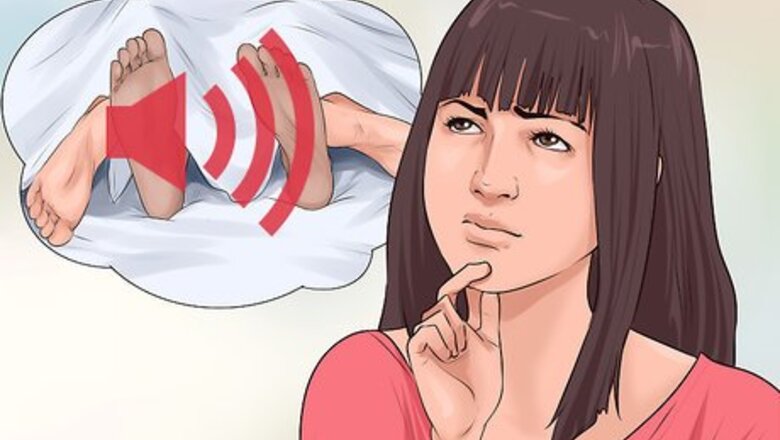
views
Understanding the Moan
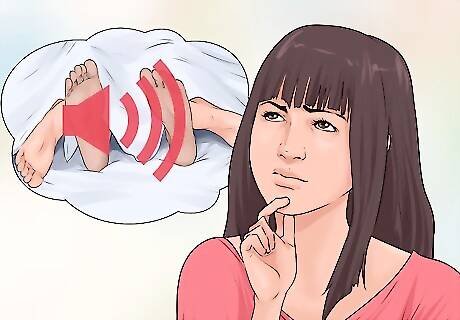
Know that moaning is involuntary, in theory. A moan is a noise of passion that escapes you when you're overcome by pleasure or sensation – usually in a sensual context. It's a way of vocalizing how good you're feeling. However, not everyone is prone to "being loud," and many people have a hard time making their sensual feelings public. With practice, confidence, and a supportive partner, you may learn to unlock your moan and make it feel more natural. Research also suggests that at least some aspect of moaning is consciously controlled, particularly for women. So if it doesn't feel natural to you, don't worry! It's still possible for you to develop a moan.

Listen to other people moan. Watch videos or listen to audio clips of people pleasuring each other and making noise. Watch YouTube videos about how to moan. The best way to master your moan is to imitate others who do it well. If you hear someone make a noise that sounds sexy, wait until you're alone – then try to replicate that noise.

Don't feel pressured to moan. Everyone responds to intense pleasure in their way, and you don't need to force yourself to moan if it doesn't come naturally to you. Yes, some people are naturally very loud in bed – but the moans you hear in movies or pornography are intentionally stylized versions of reality. If someone truly enjoys your company, they shouldn't care whether or not you're a moaner. You may even find that your partner (however long-term or temporary) doesn't care for moans. Don't assume that everyone finds moans attractive just because there is a cultural fetish for the noises.
Knowing When to Moan

Avoid outright faking it. When you moan, it should be a heightened expression of what you're already feeling. If you pretend to feel good when you don't, it may be obvious to your partner. Think about moments when you're enjoying what you're feeling, but you don't express it outwardly. Moaning is essentially an outward expression of that pleasure. It's a way of sharing it. In some cases, you may feel that it's necessary to fake a moan. Maybe you want to make your partner feel appreciated even though you aren't really in the mood; maybe you just think that a person will find it hot if you turn up the volume. Practice beforehand, at a time when you are into it, so that your fake moans sound more authentic.
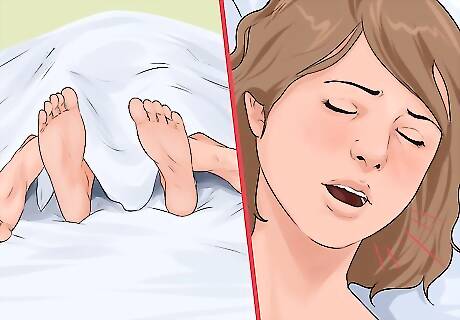
Moan softly during foreplay. Soft moans can be a great way to signal to your partner that you're into what's happening and you want it to continue. Let out a gasp or a low "mmmm" when your partner touches you in a way that feels good. Don't overdo it, or it might come off as fake.
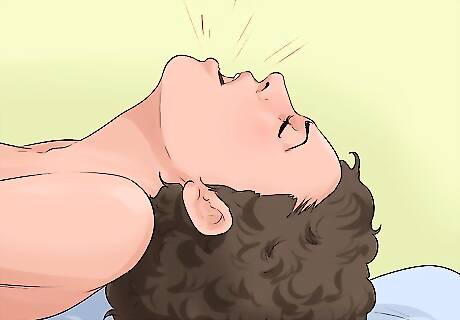
Moan loudly when things get intense. Moaning more heavily can take an intense moment to the next level. Let your moans last longer. Release your inhibitions, and don't be afraid to lose a bit of control. The more you get into it, the more authentic— and, likely, arousing to your partner— your sounds will be. Be aware of the setting. If you need to be quiet for any reason, try not to let yourself get too into the act of moaning. Maybe the walls are thin, or you have a roommate, or your parents are sitting in the next room over. Save the loud moans for a time when you can let loose.
Practicing Your Moan

Start by sighing softly. The simplest "moan" is just a gentle sigh of pleasure. You can let this noise out at any point that it seems appropriate. Sigh at the first touch, or during foreplay, or anytime that things slow down. In general, however, it's very much a "getting things started" noise.

Breathe in and out, audibly. As the situation intensifies, let your breath quicken, and try to make it audible – as though you're exerting yourself. As things get hotter and heavier, you may find that your breathing swells to match the heat of the moment. Don't be afraid to let your breath get ragged and loose as you lose yourself in the feeling.

As your breathing intensifies, add some voice and tone to your breath. Every time you breathe in, engage your vocal cords to make an "uh" sound. If you're a female, consider letting your voice inflect higher than normal, and if you're a male, consider letting your voice inflect lower – but don't feel bound to any "norm", and feel free to moan in whichever way feels most natural. Alternately, engage your vocal cords when you breathe out. It may be easier to make the pitch of your moan sound deeper on the outward breath than on the intake. Either way, the muscles involved are essentially the same.
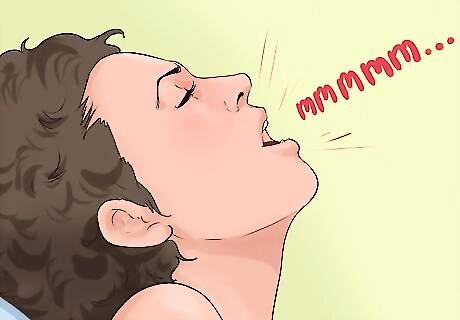
Add a few "Mmmmm"s. Use an inflection that makes it clear that you're enjoying it. Don't "mmmm" monotonously; use a sexy, seductive tone. Think of yourself like a cat purring from pleasure: you can tell that a cat is happy when it purrs, even though it's just rumbling in a certain tone.
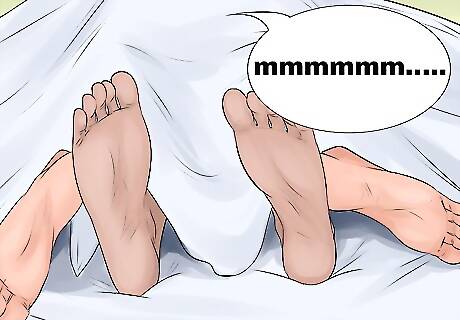
Try it out the next time you're with a partner. Real-world experience is the best way to build confidence and master your moan. Do it even if you feel self-conscious. The more you practice your moan, the more natural it will become – and the easier it will be. If you've been with someone for a while, you may want to start small. Use sighs, "Mmmmm"s, and low moans at first; don't jump straight into a fit of loud moaning that might take your partner aback. If you find yourself with a new partner, you have no expectations to contend with. Consider trying to lose yourself in the moment and explore a new, uninhibited side of yourself.
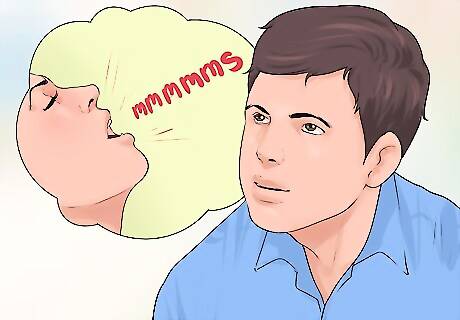
Remember that there is no right or wrong way to moan. The important thing is that you're enjoying yourself with someone who is also enjoying him/herself. Let it be a natural thing; a thing of joy; a thing of beauty.




















Comments
0 comment